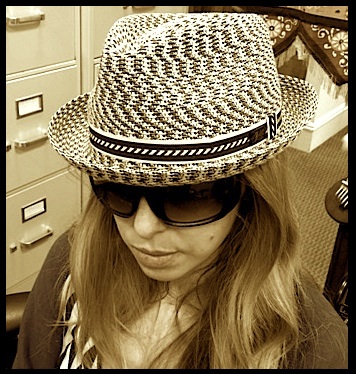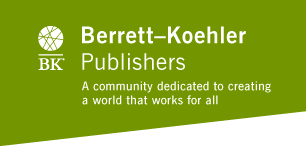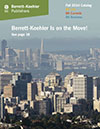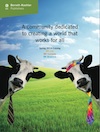A Publishing Response to Ursula K. Le Guin
Ursula K. Le Guin has been one of my favorite authors for as long as I can remember. When I read A Wizard of Earthsea as a child, it solidified my love for the fantastical genre, along with Madeleine L’Engle, Tamora Pierce, and so many others.
Her recent words on the book publishing industry have been both elating and saddening. While she calls out the need for great art and desperately needed new perspectives, she also throws publishers under the bus, citing a profit before art narrative that is quite common in vilifying publishers. I found parts of the speech exciting – when she blatantly strikes at the behemoth holding our industry by the throat, and then saddening because I believe authors and publishers are actually partners.

An Apparent Paradox
There seem to be two completely opposing narratives about publishing today. “Narrative One” is the greedy profit-driven publisher, ripping true art to shreds, and only interested in publishing terrible books for massive amounts of profit.
The other is that publishing is a dying industry (or at least cataclysmically changing) where small publishers have been going out of business and publishing house after publishing house is acquired as small companies fail. Publishing does not pay well, especially considering the talent it attracts, for one simple reason: people are not buying as many books as they used to, and the average price of a book has lagged behind the price of inflation considerably.
I can attest that the smaller publishers, at least, are struggling to survive. Perhaps “Narrative One” is true of the big 5 (known as the big 6 until the merger of Penguin and Random House) but it is not our way. For us, a difference of as little as 5% of digital royalties given to the author instead of kept can be the difference between profitability or a loss. It is not us, the small companies, who are ruthlessly profit driven. We strive to do precisely the work Ms. Le Guin is calling for- first and foremost, we publish messages we think the world needs to hear.
How to make it work?
If publishers have a responsibility to publish art for art’s sake, regardless as to whether anyone will want to read it, I ask any authors reading this, do you think your cover designer- a freelance artist like yourself- does not deserve to be paid commensurate with their skill and experience? What about the typesetter- the person whose job it is to make sure the words in your book are balanced and flow so it does not look like we just pressed “print” on an MS word document? And, dare I ask, is your editor’s time not worth compensation for the hours and focus we put into your manuscripts, carefully wracking our brains to make sure the message that is often floating beneath the surface shines through? Publishing is a partnership and business venture between author and publisher. We are your PR people, your project manager, your copy editor. You don’t pay a publicist, copy editor or cover designer, instead we all take a risk- you with your time to write the book and us with our resources and expertise to create and market the book- and then we share the revenue.
How to Achieve the Ideal
The first book I brought to our company elicited the following from our president and Publisher: “We need to publish this. It is so important, I would say we need to publish it even if we never earn a cent on it.” This is the spirit in which many small publishers operate, but here is the catch- we DO need some books to make enough money to keep us in business. For smaller publishers, focusing on the earning potential of a manuscript is an issue of survival, not maximizing profit. (In case you were wondering, that book was The Nonviolence Handbook).
And here I (although I dislike the “open letter” format) would like to address Ms. Le Guin and other authors like her directly.
So many of us are in this with you. We are all struggling to keep this art form alive, but the publishers are not the only ones that need to find new ways to move us forward. As a small publisher with few financial resources, we cannot hope to compete with the six figure advances that the big houses can offer, and so publishing the big names that sell tens of thousands of books is almost impossible for us. While I completely understand why any sane person would publish with the highest advance offered, I can tell you this: all it would take is one author of your stature, Ms. Le Guin, to keep our house financially healthy for at least a full year. If we had one major author every year to keep us afloat, we could take greater risks. Big name authors would open media connections and strengthen our marketing department so some of those smaller voices could get airtime. We wouldn’t be crippled by the extraordinary rate that amazon charges us so they can profit off of our products. Would you encourage other superstar authors take a risk on us? Would you exhort them to publish with a small house, foregoing an enormous advance, keeping us afloat and able to find and promote the next great work of art?
I hope you will consider it.
Brought to you by....
Confessions of an Editorial Assistant

About Anna Leinberger, Editorial Assistant
There is no shortage of information in the world about how to submit a good book proposal to a publisher or an agent. Yet as every young thing who has come up through an editorial department at a book publisher knows, much of this information goes unheeded. In fact, much of what makes a good proposal is actually embedded in the proposal guidelines themselves! We tell you exactly what we want!
And yet.
My answer to this, in the spirit of BK and stewardship, is to add a voice to the milieu, and to address specific issues that I see arising repeatedly. In other words, I am offering you a free sneak peak into our values and the process by which we evaluate proposals and manuscripts at a non-fiction publishing house!
I want to make your book proposals better.
Anna is an editor and (with the advent of this column) a writer living in San Francisco. She majored in dead languages at Oberlin and then proceeded to gallivant all over the world teaching various things to various age groups before succumbing to the siren song of the beautiful bay area. When not working, she likes to hang upsidown from just about anything and sail fast boats. You can follow her on twitter here: https://twitter.com/AnyaReads
 0 items in cart
0 items in cart









